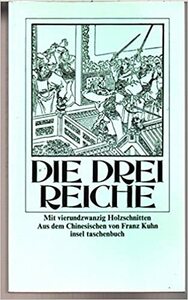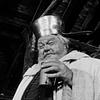Take a photo of a barcode or cover
adventurous
challenging
emotional
informative
tense
medium-paced
Plot or Character Driven:
A mix
Strong character development:
Complicated
Loveable characters:
Complicated
Diverse cast of characters:
No
Flaws of characters a main focus:
Yes
This book was a great introduction to the Romance of the Three Kingdoms story, perfect for anyone who would like to have some fun learning Chinese.
这本书非常好的介绍“三国演义”,很适合一个想享受学习中文和中国文化过程的人。
(如果我的汉语有问题,请您不要介意,我还在学习。)
This is a review of the abridged version, not the original.
这本书非常好的介绍“三国演义”,很适合一个想享受学习中文和中国文化过程的人。
(如果我的汉语有问题,请您不要介意,我还在学习。)
This is a review of the abridged version, not the original.
I rarely write reviews but after much consideration, I felt that this book deserved one. First, let me say that I have strick rules about how I rate books. If I cannot or will not finish a book for some reason I give it one star. (Conversely, if I can see re-reading a book I'll give it 5 stars.) So while I felt that I couldn't finish this book, I do feel that a reader who is interested in the military or in Chinese history or even better, Chinese military history then this is definitely a book you might like! However, if you are looking for strong character development then, like me, you might find this book a bit challenging. I feel my cousin described the character development in this book well when he said 'Just assume that every hundred pages or so everyone you know will die.'
adventurous
emotional
tense
fast-paced
Plot or Character Driven:
Plot
Strong character development:
Complicated
Loveable characters:
Complicated
Diverse cast of characters:
No
Flaws of characters a main focus:
Yes
Rating mainly reflecting the abridgment of the Penguin edition. I appreciate the effort, but felt rushed and overly smoothed in parts.
adventurous
informative
sad
Plot or Character Driven:
Plot
Strong character development:
Complicated
Loveable characters:
Complicated
Five stars for the immense cultural impact of this book, but overall not quite five stars bc the style is very matter of fact and action-focused
The prose is rather blunt, much of the eloquence is lost in translation, once or twice taking on the cadence of a Wikipedia article. But the extremely compelling narrative more than makes up for it. Liu Bei is an all-time hero, Cao Cao is an all-time villain. A remarkable novel.
Some misspellings in the edition I got, but overall an interesting and dramatic if overlong tale.
adventurous
slow-paced
challenging
reflective
slow-paced
Plot or Character Driven:
Character
Diverse cast of characters:
No
adventurous
challenging
hopeful
inspiring
tense
slow-paced
Plot or Character Driven:
Character
Strong character development:
Yes
Loveable characters:
Yes
Diverse cast of characters:
Yes
Flaws of characters a main focus:
Yes
Fantastic book and classic. The story has great flow, character moments and developments as well as big plot instances. The character writing is most likely the single most lovable thing of this title and we can see this based on the sheer influence on culture and pop culture this book has had on the world.




